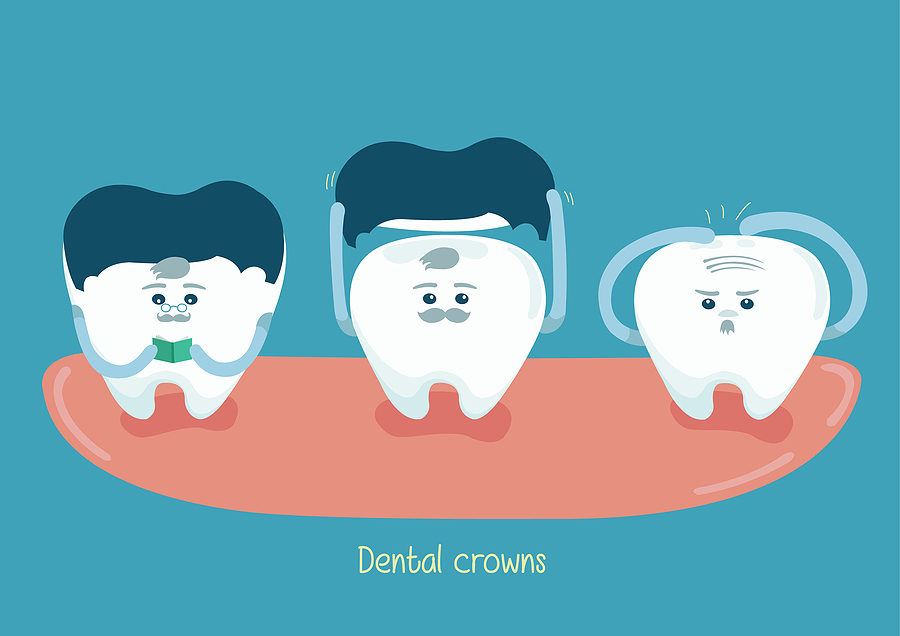![This is a thumbnail image of blog Transform Your Smile with Dental Crowns: A Comprehensive Guide This is a thumbnail image of blog Transform Your Smile with Dental Crowns: A Comprehensive Guide]()
Transform Your Smile with Dental Crowns: A Comprehensive Guide
Jan 21, 2025![Smile Makeover in Kilgore, TX Smile Makeover in Kilgore, TX]()
Transform Your Smile with a Personalized Smile Makeover
Apr 29, 2024![This is a thumbnail image of blog The Role of Dental Crowns in Cosmetic Dentistry This is a thumbnail image of blog The Role of Dental Crowns in Cosmetic Dentistry]()
The Role of Dental Crowns in Cosmetic Dentistry
May 26, 2024![This is a thumbnail image of blog How Cosmetic Dentistry Is Transforming Smiles? This is a thumbnail image of blog How Cosmetic Dentistry Is Transforming Smiles?]()
How Cosmetic Dentistry Is Transforming Smiles?
Jan 31, 2024![This is a thumbnail image of blog The Importance of Dental Crowns This is a thumbnail image of blog The Importance of Dental Crowns]()
The Importance of Dental Crowns
Dec 20, 2023

Do You Need a Root Canal? 5 Telltale Symptoms You Shouldn't Ignore
Root canals. Just the mention of those two words is enough to send shivers down your spine, right? But fear not! In this blog post, we're here to shed some light on what root canals really are and help you determine if you might need one. Whether it's that persistent toothache or a sudden sensitivity to hot or cold foods, we've got you covered with these telltale symptoms. So sit back, relax (yes, even when talking about root canals!), and let's dive into the world of oral health together.
What is a Root Canal in Kilgore, TX?
Picture this: your teeth are like little fortresses, protecting the sensitive nerves and tissues inside. But sometimes, these defenses can be breached by deep decay, a crack in the tooth, or even an injury. And that's where a root canal comes into play.
A root canal is a dental procedure that aims to save a severely damaged or infected tooth from extraction. It involves removing the pulp (the soft inner part of the tooth) when it becomes inflamed or infected due to bacteria entering through cavities or cracks.
During the procedure, your dentist at Deluxe Dental will carefully clean and disinfect the affected area before filling it with a special material called gutta-percha. This helps to seal off any remaining bacteria and prevent further infection.
Root canals may sound intimidating, but they're actually done under local anesthesia, ensuring minimal discomfort throughout the process. Plus, modern advancements in dentistry have made them quicker and more efficient than ever before!
Common Reasons for Needing a Root Canal in Kilgore, TX
Dealing with dental issues can be quite unpleasant, and one common treatment that often comes to mind is the dreaded root canal. But what exactly leads to the need for this procedure? Let's explore some of the most common reasons why individuals may require a root canal.
1. Severe Tooth Decay: When tooth decay reaches an advanced stage and extends deep into the tooth, it can cause significant damage to both the enamel and inner pulp. This deterioration often necessitates a root canal to remove infected tissue.
2. Dental Trauma: Accidents or injuries that result in cracked or broken teeth can expose the delicate pulp underneath, leaving it vulnerable to infection. In such cases, a root canal may be necessary to preserve the tooth and prevent further complications.
3. Deep Cavities: Untreated cavities that are left unattended can grow larger over time, eventually reaching down into the pulp of your tooth. Once this happens, you'll likely experience pain and sensitivity, indicating that a root canal is needed.
4. Prolonged Tooth Sensitivity: If you find yourself experiencing persistent sensitivity when consuming hot or cold foods/drinks even after removing their source from contact with your teeth/gums—this could indicate an issue requiring a root canal examination by your dentist.
5. Gum Disease: Advanced gum disease (periodontitis) affects not only your gums but also weakens the surrounding bone structure supporting your teeth—leading to loose teeth which might require extraction if left untreated; however sometimes gum disease causes irreparable damage needing either periodontal surgery or endodontic therapy like a root canal instead.
Remember these are just some of many reasons why someone might require a root canal treatment! It's always best to consult with our dentist by contacting us if you're experiencing any oral discomfort so we can properly diagnose and recommend appropriate treatment options tailored specifically for you.
The Process of Getting a Root Canal in Kilgore, TX
The process of getting a root canal in Kilgore, TX, is actually not as scary as it may sound. In fact, it's a fairly routine dental procedure that can help save your tooth and alleviate pain.
First, our dentist will numb the area around the affected tooth using a local anesthetic. This ensures that you won't feel any pain during the procedure. Once you're comfortable, the dentist will create a small opening in your tooth to access the infected pulp.
Next, we will use special instruments to carefully remove all of the infected pulp from inside your tooth. This step is crucial in preventing further infection and preserving your natural tooth structure.
After removing the infected pulp, the dentist will clean and disinfect the inside of your tooth thoroughly. They may also shape or enlarge the root canals before filling them with a rubber-like material called gutta-percha.
Once filled, a temporary filling or crown is placed over your treated tooth to protect it while waiting for a permanent restoration like a crown or bridge.
Getting a root canal is generally straightforward and relatively painless thanks to modern dental techniques and anesthesia. It's an important treatment option for saving teeth that would otherwise need extraction. So if you're experiencing symptoms indicating you might need one, don't hesitate to consult with your dentist for proper evaluation and treatment options!
Conclusion
If you are experiencing any of the telltale symptoms mentioned in this article, it is important to consult with your dentist as soon as possible. While a root canal may sound intimidating, it is actually a common and highly effective procedure for saving an infected or damaged tooth.
Remember, only a dental professional can accurately diagnose whether or not you need a root canal. So don't ignore any persistent pain or sensitivity in your teeth. Early detection and treatment can prevent further complications down the line.
If you do find yourself needing a root canal, rest assured that advancements in dentistry have made the procedure more comfortable and efficient than ever before. With proper care and regular check-ups, your treated tooth can continue to function just like any other healthy tooth.
Don't let fear or misconceptions hold you back from seeking necessary dental care. Your oral health plays a crucial role in your overall well-being, so take control of it today!
Remember: Prevention is always better than cure! Maintain good oral hygiene habits by brushing twice daily, flossing regularly, eating a balanced diet,and scheduling routine visits to your dentist. By taking these proactive steps, you can help minimize the chances of needing invasive procedures like root canals.
Take care of your smile—it's worth it! To learn more, visit Deluxe Dental at 1101 Stone St #106, Kilgore, TX 75662, or call (903) 200-5111.
Contact Us
1101 Stone St #106,
Kilgore, TX, TX, 75662
Email: deluxedentaltx@gmail.com
Phone: (903) 200-5111
Working Hours
MON - FRI9:00 am - 5:00 pm
SAT - SUNClosed






comments